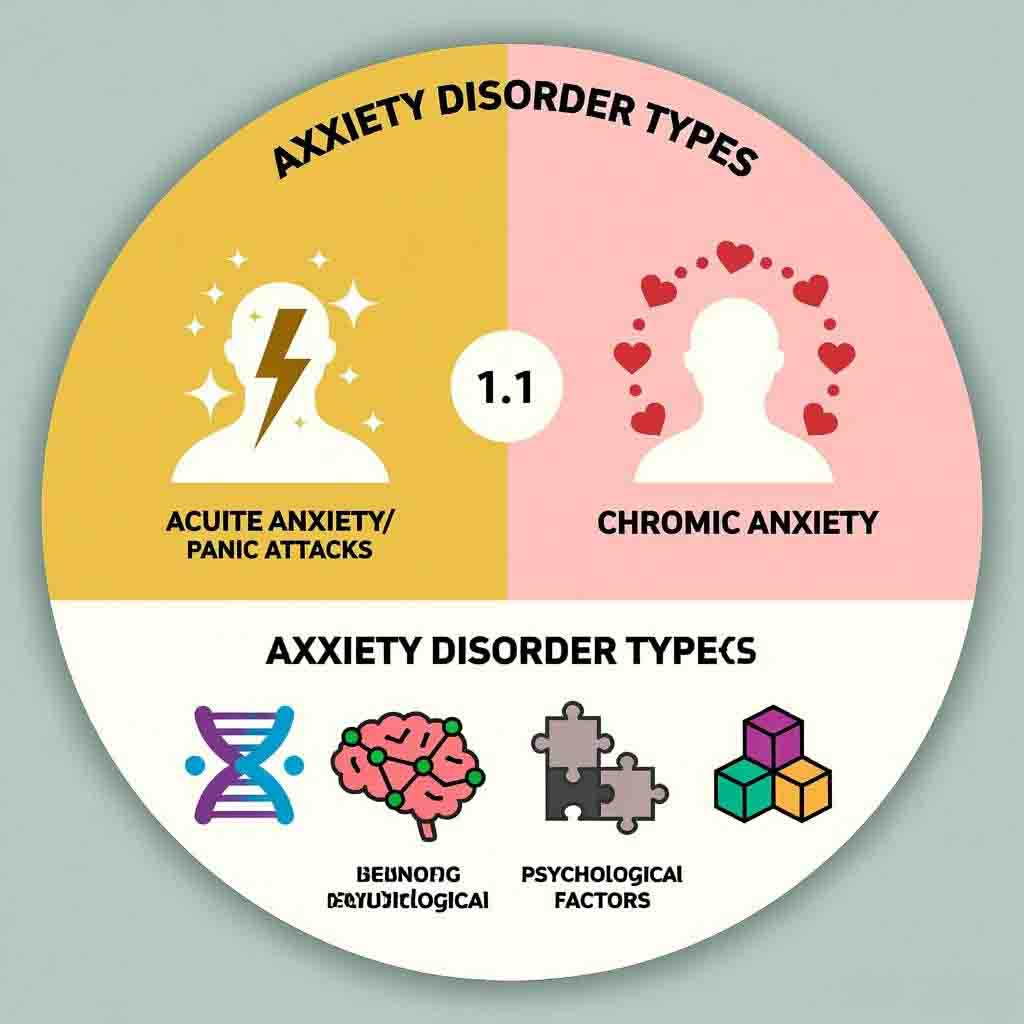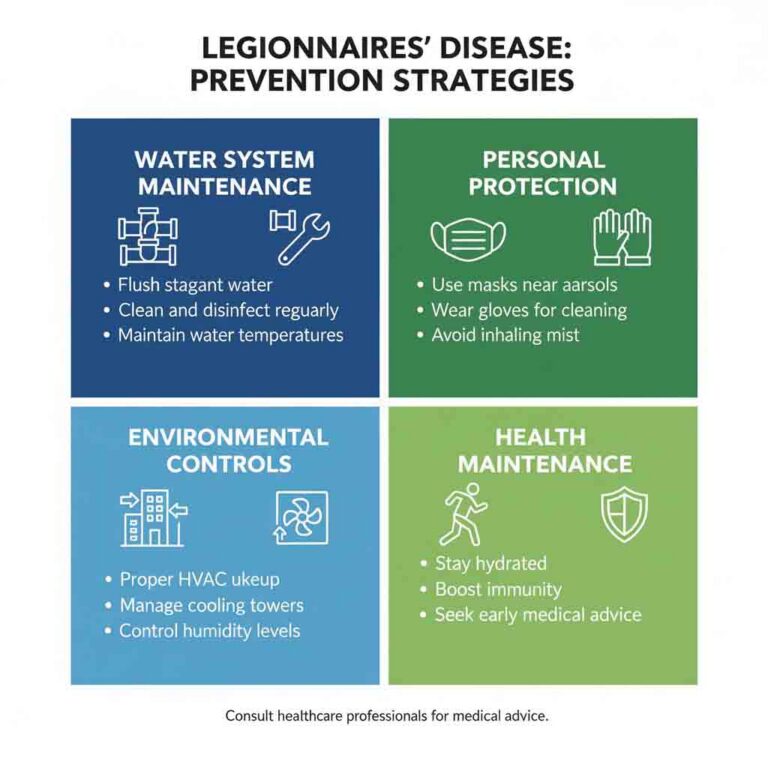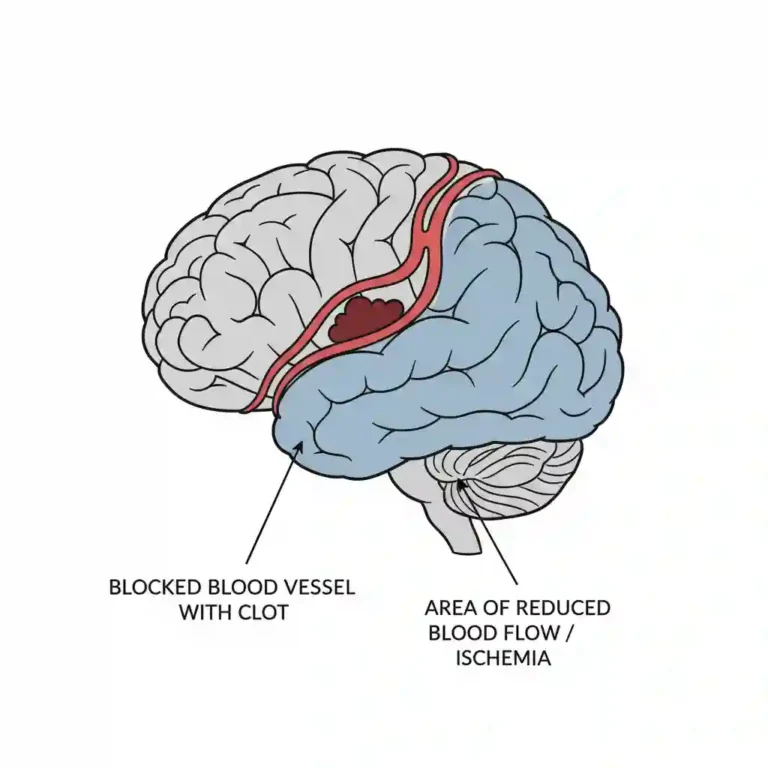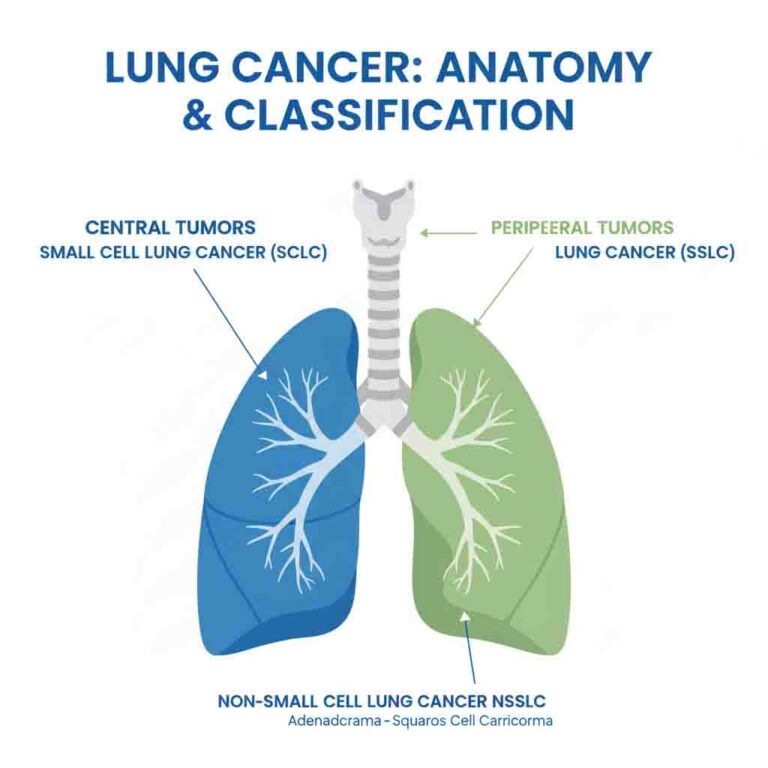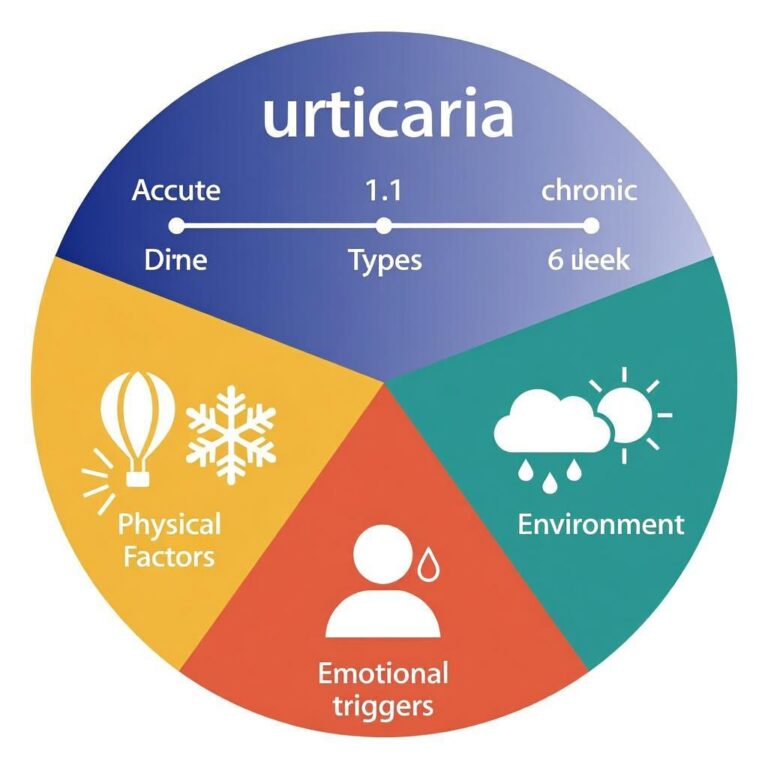Clinical Definition
Anxiety Disorders constitute a category of psychiatric conditions characterized by excessive, persistent, and unrealistic worry or fear that causes significant distress and functional impairment. According to the DSM-5-TR, this spectrum includes Generalized Anxiety Disorder (GAD), Panic Disorder, and Social Anxiety Disorder. The pathophysiology involves dysregulation of neurocircuitry in the amygdala and prefrontal cortex, often associated with neurotransmitter imbalances (GABA, Serotonin, Norepinephrine).
Clinical Coding & Classification
| System / Category | Code(s) | Description |
|---|---|---|
| ICD-10-CM | F41.1 | Generalized anxiety disorder (GAD) |
| ICD-10-CM | F41.0 | Panic disorder [episodic paroxysmal anxiety] |
| CPT (Psychiatry) | 90791 | Psychiatric diagnostic evaluation |
| CPT (Screening) | 96127 | Brief emotional/behavioral assessment (e.g., GAD-7) |
| Affected System | Neuropsychiatric | Limbic System (Amygdala, HPA Axis) |
Epidemiology & Statistics
Anxiety disorders are the most prevalent class of mental disorders, with a lifetime prevalence of approximately 33.7%. There is a significant gender disparity, with females being affected nearly twice as frequently as males. The median age of onset is 11 years, significantly earlier than other major psychiatric disorders. High rates of comorbidity exist with Major Depressive Disorder (MDD) and Substance Use Disorders.
Pathophysiology (Mechanism)
The neurobiological basis of anxiety involves a disruption in the threat-response mechanisms:
1. Amygdala Hyperactivity: The amygdala (fear center) exhibits exaggerated response to negative stimuli, failing to be inhibited by the Prefrontal Cortex (executive control).
2. Neurotransmitter Dysregulation:
– GABAergic System: Reduced binding potential of Gamma-Aminobutyric Acid (GABA), the primary inhibitory neurotransmitter.
– Monoamines: Dysregulation in Serotonin (5-HT) and Norepinephrine pathways.
3. HPA Axis Dysregulation: Chronic overactivation of the Hypothalamic-Pituitary-Adrenal axis leads to elevated cortisol levels.
Standard Management Protocols
First-line treatment guidelines (e.g., APA, NICE) recommend a combination of pharmacotherapy and psychotherapy.
- Pharmacological Classes:
- SSRIs / SNRIs: (e.g., Escitalopram, Sertraline, Venlafaxine) First-line agents. Mechanism involves blocking the reuptake of serotonin/norepinephrine to increase synaptic availability.
- Benzodiazepines: (e.g., Alprazolam, Clonazepam) Positive allosteric modulators of GABA-A receptors. Reserved for acute, short-term management due to dependency risk.
- Buspirone: 5-HT1A receptor partial agonist, used specifically for GAD.
- Psychotherapeutic Interventions:
- Cognitive Behavioral Therapy (CBT): The gold standard. Focuses on cognitive restructuring (challenging maladaptive thoughts) and exposure strategies.
Healthcare Resource Utilization
Anxiety disorders drive significant healthcare costs, often through non-psychiatric channels:
- “Somatic” Presentations: High frequency of ER visits for chest pain or palpitations (mimicking myocardial infarction) caused by Panic Attacks.
- Productivity Loss: A leading cause of disability-adjusted life years (DALYs) lost.

